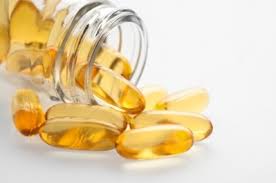Adding Vitamin E to Your Diet: Benefits, Foods and Cautions
Vitamin E is a fat-soluble vitamin that acts as an antioxidant in the body. It is essential for maintaining healthy skin, eyes, and immune function. While some people may be getting enough vitamin E from their diet, others may need to supplement their intake. In this article, we will discuss the benefits of vitamin E, foods that contain it, and cautions to keep in mind.
Benefits of Vitamin E:
- Antioxidant: Vitamin E is an antioxidant that helps to protect cells from damage caused by free radicals.
- Skin health: Vitamin E is important for maintaining healthy skin, as it helps to reduce oxidative stress and inflammation.
- Immune function: Vitamin E plays a role in supporting immune function and may help to protect against infections.
- Eye health: Vitamin E may help to prevent age-related macular degeneration and cataracts.
- Heart health: Vitamin E may help to reduce the risk of heart disease by preventing the oxidation of LDL cholesterol.
- Alzheimer’s prevention: Some studies suggest that vitamin E may help to prevent or slow the progression of Alzheimer’s disease.
Foods that contain Vitamin E:
- Nuts and seeds: Almonds, sunflower seeds, hazelnuts, and peanuts are all good sources of vitamin E.
- Vegetable oils: Sunflower oil, safflower oil, and wheat germ oil are all high in vitamin E.
- Green leafy vegetables: Spinach, kale, and Swiss chard are all good sources of vitamin E.
- Avocado: Avocado is a good source of vitamin E and also contains healthy fats and fiber.
- Fish: Salmon, trout, and mackerel are good sources of vitamin E.
Cautions:
- Supplement use: While it is possible to get enough vitamin E from food, some people may need to supplement their intake. However, it is important to talk to your doctor before taking any supplements, as high doses of vitamin E can be harmful.
- Blood thinning medication: Vitamin E may increase the risk of bleeding when taken with blood thinning medications, such as warfarin. Talk to your doctor before taking vitamin E supplements if you are taking these medications.
- Prostate cancer risk: Some studies have suggested that high doses of vitamin E may increase the risk of prostate cancer. More research is needed in this area, but it is important to talk to your doctor before taking high doses of vitamin E supplements.
Wellhealthorganic.Com:Vitamin-E-Health-Benefits-And-Nutritional-Sources
In conclusion, vitamin E is an essential nutrient that has many benefits for overall health. It is found in a variety of foods, including nuts and seeds, vegetable oils, green leafy vegetables, avocado, and fish. While supplements may be necessary for some people, it is important to talk to your doctor before taking them, as high doses can be harmful. By incorporating vitamin E-rich foods into your diet, you can support your immune function, heart health, and overall well-being.
